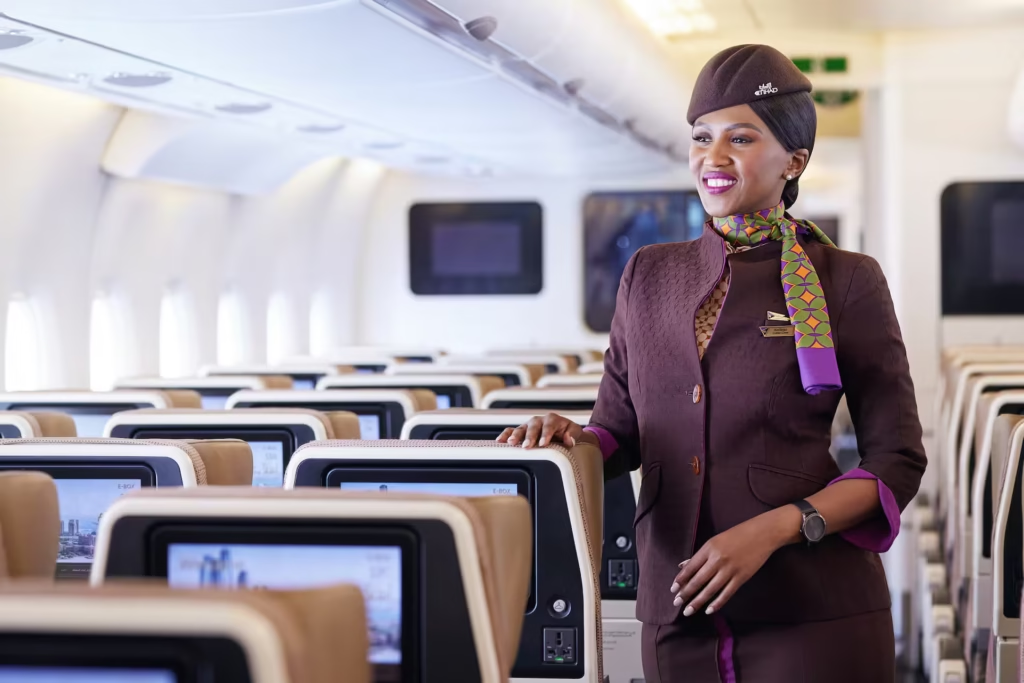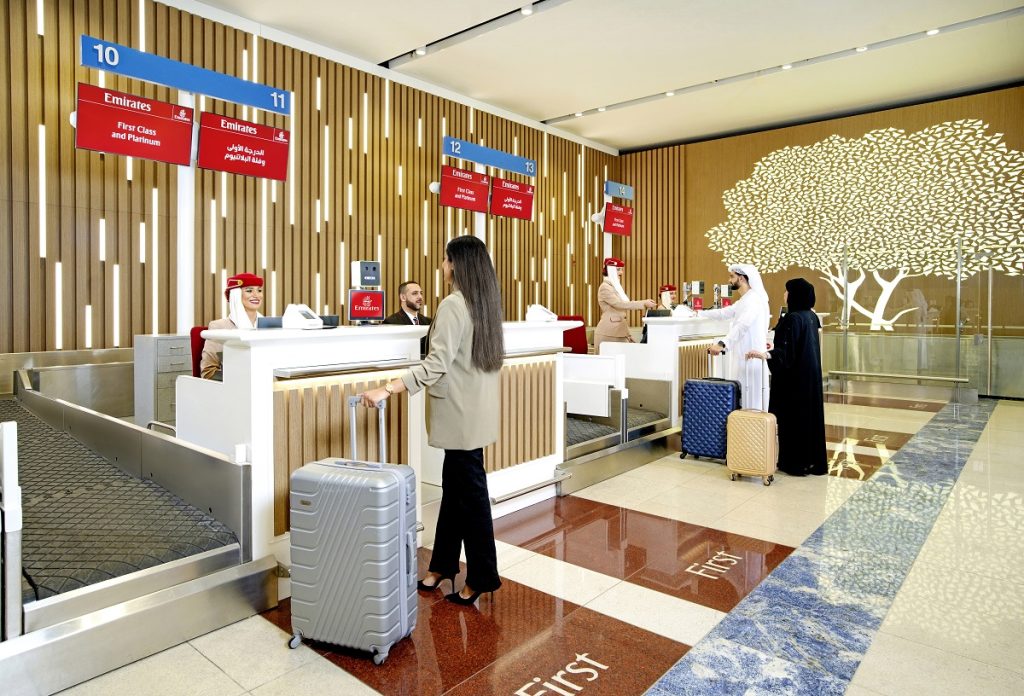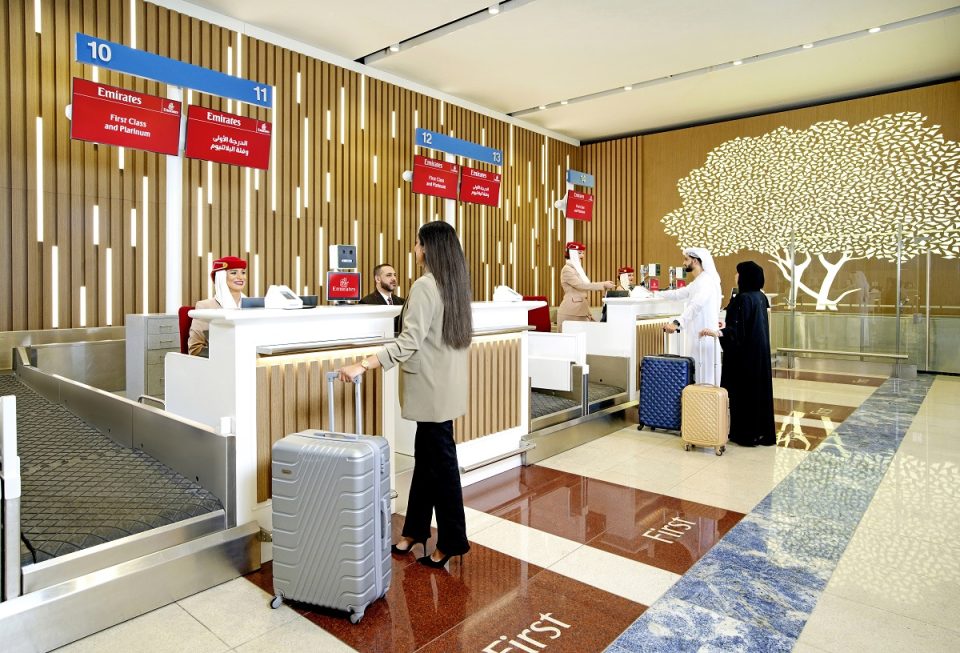Aviation isn’t just about planes in the sky. It’s very much about people, skills, and the kind of expertise that keeps five billion passengers moving safely and smoothly around the globe. According to IATA, aviation supports 86.5 million jobs and contributes a jaw-dropping $4.1 trillion to global GDP. With 40 million flights expected in 2025, the demand for skilled professionals has never been higher.
So, what’s driving the need for smarter, sharper training in aviation right now? The latest IATA Training: 10 Trends report lays it all out, and trust us, it’s not just for aviation geeks. Whether you’re a ground handler, a data scientist, or a future airline CEO, these trends show why training is the golden ticket to a rewarding career in one of the world’s most dynamic industries.
1. Sustainability

The industry’s boldest challenge is slashing 21 gigatons of CO2 by 2050.This ambitious goal demands highly skilled professionals to lead the industry’s progress across all operations and develop the necessary tools and technologies to achieve sustainability. That’s where training comes in, from sustainable aviation fuels (SAF) to waste management. As Thai Airways CEO Chai Eamsiri puts it:
“Sustainable aviation fuel (SAF) is obviously the big contributor to net zero carbon emissions. But… there is a lot that can be done outside of SAF, and it is the small things that will add up to make a difference.”
2. Airport capacity
Passenger demand is booming, but runways aren’t magically multiplying. 216 airports are already slot-coordinated, representing 43% of global passengers. The airport industry, along with related businesses like car rentals and catering, supports around 6.5 million jobs. From dispatchers to airport managers, these professionals work tirelessly behind the scenes to deliver seamless travel experiences while prioritizing safety and security. That’s why efficiency and smart planning are everything. As Nick Careen, IATA’s SVP for Operations, Safety and Security, warns:
“The only cure for insufficient capacity is construction… but we must squeeze every last unit of capacity out of the infrastructure we have.”
3. Safety
Aviation is already one of the safest ways to travel, but “good enough” doesn’t cut it. Aviation safety for the billions of passengers flying each year relies on a broad range of professionals, including auditors, safety inspectors, quality assurance specialists, emergency response coordinators, firefighters, ramp safety officers, and accident investigators, among others. Mitsuko Tottori, President and CEO of Japan Airlines, nails it:
“Safety is in the details. I want to maintain a sense of vigilance… so that we are always alert to potential safety lapses, no matter how small.”
4. Passenger experience

Forget endless queues and paper boarding passes. Recent air travel likely had you noticing changes in the passenger experience, with a growing focus on making every step accessible via smartphone, from booking and storing travel docs to payment. This shift impacts various roles, including e-commerce leaders, revenue managers, and loyalty program specialists, as over 130 countries explore digital currencies. IATA’s Yanik Hoyles predicts:
“To make the seamless journey a reality takes mastery of several elements…100% Offers and Orders and the seamless journey should start to be commonplace by the end of the decade.”
5. Data & cybersecurity
Aviation runs on data, but with great data comes great responsibility. Navigating the complex web of data regulations is challenging, and safeguarding sensitive information from potential breaches is equally crucial as new rules continue to emerge. Additionally, cyberattacks and outages can ground flights worldwide, costing billions. Kim Macaulay, IATA’s Chief Information and Data Officer, makes it clear:
“The industry’s digital transformation relies on having as much data as possible and having that data accessible to numerous systems – all of which creates risk in terms of data breaches and other forms of cyber threats.”
6. Finance
Airline revenues are set to smash $1 trillion in 2025, but net margins hover at just 3.6%, around $7 per passenger. Also, financial hurdles today span blockchain adoption to fuel optimisation, making expertise in revenue management, cost-cutting, and aircraft acquisition highly sought after. As IATA Director General Willie Walsh reminds us:
“In 2025, industry revenues will exceed $1 trillion for the first time… almost 1% of the global economy. That makes airlines a strategically important industry. But remember that airlines carry $940 billion in costs, not to mention interest and taxes. They retain a net profit margin of just 3.6%. Put another way, the buffer between profit and loss, even in the good year that we are expecting of 2025, is just $7 per passenger.”
7. Leadership

Running an airline takes more than spreadsheets. Operating a single flight requires a diverse team, multiple processes, and adherence to industry commitments like safety and sustainability, all while navigating challenges such as weather disruptions, staffing issues, and equipment malfunctions. From weather disruptions to regulatory hurdles, effective leadership is crucial to keeping staff productive and passengers satisfied. Campbell Wilson, CEO of Air India, puts it bluntly:
“From a human resources perspective there are obviously some material changes needed… These include the implementation of performance management processes, key performance indicators that carry rewards and consequences, advancement being based on talent not tenure, and more systematic and impartial practices.”
8. Cargo
Think online shopping, fresh fruit in winter, and even global sporting events. Air cargo fuels global trade and e-commerce, delivering everything from fresh produce to high-tech goods. With growth expected to continue, reaching 72.5 tons of cargo and generating $157 billion for airlines, the industry relies on skilled professionals to handle diverse challenges, from safely transporting lithium batteries and perishables to implementing digital standards and ensuring security. FedEx’s Luiz R. Vasconcelos believes digitalisation and AI are game-changers:
“Embracing technology, particularly artificial intelligence (AI), is essential for the region to enhance customer experiences and compete in a digitized supply chain. AI adoption can improve shipment transparency, efficiency, and cost optimization while enabling predictive capabilities to address potential disruptions proactively.”
9. Regulations
Aviation is one of the most regulated industries on Earth, but rules need to keep pace with modern challenges. In 2025, the aviation industry is pushing for regulations that match modern operations and technological advancements. Questions remain whether current sustainability rules are effective and if consumer regulations improve service or just increase costs. Regulators must craft policies that address the industry’s evolution, including AI, to create a solid foundation for future growth. As Leslie MacIntosh, IATA Acting General Counsel, explains:
“Regulatory “fever” in the wake of growing and more intrusive social media was developed without considering the special characteristics of international civil aviation… One of those innate characteristics is that in order to transport a person across borders by air, their data needs to travel with them!”
10. Ground operations
Baggage handlers, dispatchers, and ramp supervisors keep aircraft turning around on time. Behind every smooth flight departure is a team of ground operation experts, including station managers, aircraft marshals, baggage handlers, ramp supervisors, and passenger service specialists, all working together to keep flights on schedule. With safety being top priority, the industry faces a growing challenge and that is, unless preventive measures are taken, ground damage costs could reach nearly $10 billion by 2035, highlighting the need for robust safety and security measures. As Nick Careen says:
“By sharing data, we will be able to support this vital activity with data-driven insights and decisions. Maximising the impact of data relies on broad contributions. We encourage ground handler participation to strengthen our
collective insights.”

So why is training more important today than ever? Well, IATA’s latest survey shows that:
- 84% of participants said training boosted their career prospects.
- 89% applied new skills directly to their jobs.
- 82% expanded their professional networks.
From classroom simulations to VR courses, IATA Training is equipping more than 100,000 professionals each year with the tools to keep aviation soaring. At the end of the day, aviation isn’t just about aircraft, but about people, and the skills that make flying safer, greener, and more connected.
In essence, the skies may be vast, but opportunities in aviation are even bigger. Whether you want to decarbonise the industry, redefine passenger journeys, or master the art of ground handling, there’s a course, and a career path, waiting for you.



